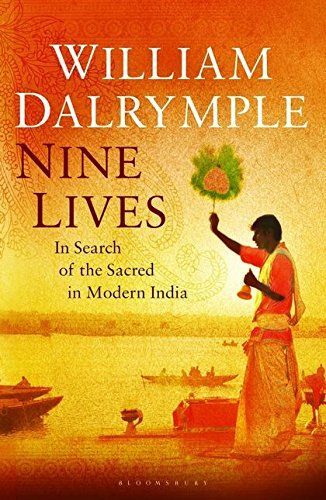
Nine Lives In Search of the Sacred in Modern India
From the Dust Jacket: A Buddhist monk takes up arms to resist the Chinese invasion of Tibet-then spends the rest of his life trying to atone for the violence by hand printing the best prayer flags in India. A Jain nun tests her powers of detachment as she watches her best friend ritually starve to death. A woman leaves her middle-class family in Calcutta, and her job in a jute factory, only to find unexpected love and fulfillment living as a Tantric skull feeder in a remote cremation ground. A prison warden from Kerala becomes, for two months of the year, a temple dancer and is worshipped as an incarnate deity; then, at the end of February each year, he returns to prison. An illiterate goat herd from Rajasthan keeps alive an ancient 4,000-line sacred epic that he, virtually alone, still knows by heart. A devadasi-or temple prostitute-initially resists her own initiation into sex work, yet pushes both her daughters into a trade she now regards as a sacred calling. Nine people, nine lives. Each one taking a different religious path, each one an unforgettable story. Exquisite and mesmerizing, and told with an almost biblical simplicity, William Dalrymple's first travel book in over a decade explores how traditional forms of religious life in South Asia have been transformed in the vortex of the region's rapid change. A distillation of twenty-five years of exploring India and writing about its religious traditions, Nine Lives is a modern Indian Canterbury Tales.
Reviews
Timeo Williams@timeowilliams
garima mamgain@garima
Amro Gebreel@amro
Rachel Prudden@stubborncurias